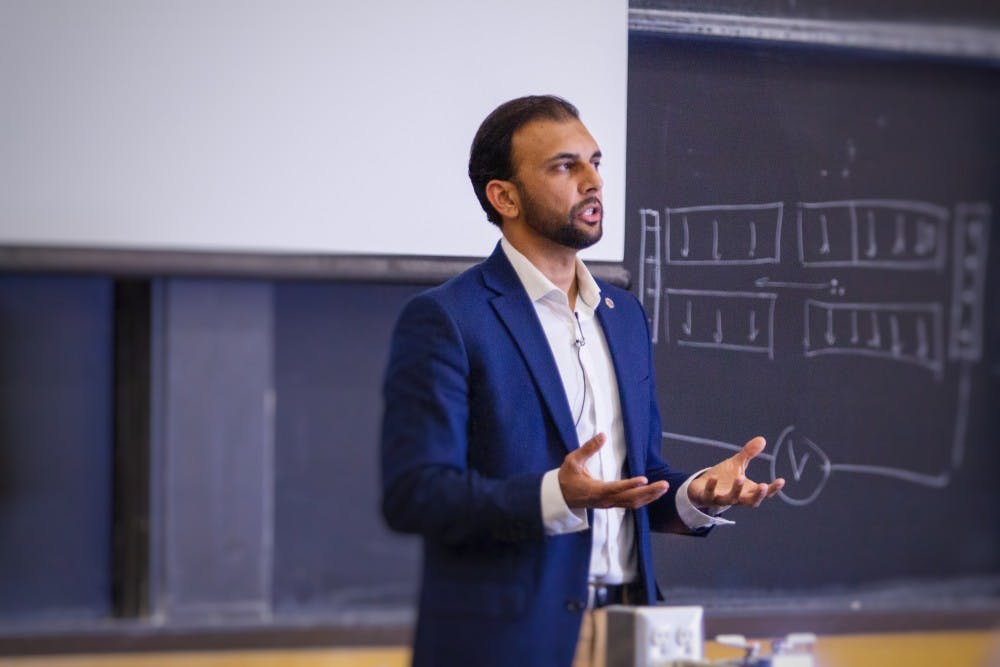Human rights activist and lawyer Qasim Rashid spoke about white supremacy, terrorism and gun violence on Wednesday night in the Natural Science Complex. At least three UPD officers provided security for the event, which is standard practice for any lecturer who has received death threats in the past.
Rashid — who is currently running for the Virginia State Senate — routinely gives lectures at schools and universities across America and is a prolific writer for topics like race, Islamophobia and the military industrial complex. His lecture on Wednesday focused on the nuances of white supremacy, the history of Native American and African American oppression, the treatment of prisoners and gun control reform. Uma Khan, a junior sociology major, said the Black Student Union and Amnesty International organized the event.
Barbara Ricotta, senior associate vice president for Student Life, played a video about UB's stance on freedom of speech before the lecture began.
Rashid’s lecture was a whirlwind of factual information, statistics and scholarly citations and the speaker included personal anecdotes of the post-9/11 Muslim experience and stories of people directly affected.
The audience of roughly 200 students and Buffalo community members watched, with the majority staying throughout the duration of the two-and-a-half-hour-long lecture.
Khan said the event was her idea and was initially named “Combating domestic terrorism and gun violence.”
But that changed after the Christchurch Mosque shootings in New Zealand, which resulted in the deaths of 50 people between the ages of 3 and 77. The majority of victims were Muslim.
Khan said she then realized it was white supremacy, and said she had to call the event “what it is.“
Elizabeth Kubiniec, the president of Amnesty International, said she hoped Rashid’s lecture would work to reduce discrimination, as people are better able to understand another culture.
“I believe the best way to combat white supremacy and terrorism is by obtaining a deeper understanding of all of our neighbors and peers,” Kubiniec said.
During the Q&A portion of the event, which lasted a full hour, students asked Rashid questions about immigration, freedom of expression and religious persecution both internationally and domestically.
A student told Rashid that UB’s African and African American Studies program was “under attack” and asked him what students could do to help the department regain its independence from the transnational studies department.
Rashid responded, detailing his own experiences as a law student at the University of Richmond, where he found limited books relating to Islamic Sharia law.
He said he wrote to his professors and the university president. Within a month, he said, the university had purchased multiple books related to the subject.
“The first thing is to recognize that the university is ultimately accountable to its students,” Rashid said.
He advised Clinton to identify the most pressing issue, build a coalition, organize a petition and then take it to university faculty.
“And if they can’t [address it], they better have a damn good reason why,” Rashid said.
Correction: An earlier version of this article stated an inaccurate figure for the amount the University of Richmond spent on books after Rashid's letter.
Tanveen Vohra is a co-senior news editor and can be reached at Tanveen.Vohra@ubspectrum.com and on Twitter @TanveenUBSpec.
Tanveen Vohra is a former senior news editor and covered international relations and graduate student protests.






